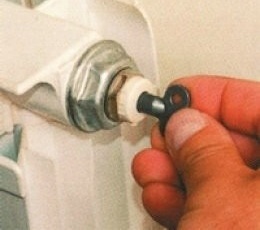Soundproofing pipes and radiators: how to make your heating system quieter
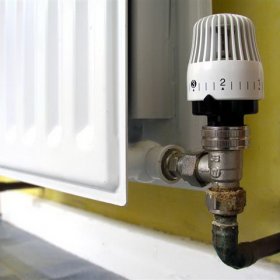
When planning your own heating system, it is worth considering that it can become not only a source of heat, but also a conductor of a wide variety of sounds. Pipes may whistle, buzz, knock, etc. due to improper installation or breakdowns. Some heating radiators transmit sound so well that the owners of a house or apartment have to carry out serious work on their sound insulation. Through metal heating pipes, the sound spreads well and is transmitted quite clearly. Heating pipes can buzz, click, knock, pop, etc.
Most often, these phenomena indicate that the heating system is not in order. Either errors made during installation are manifested in this way, or the system has breakdowns. Therefore, to ignore even a small noise in the heating pipes is not worth it. By the nature of the noise, a preliminary conclusion about possible malfunctions can be made.
Symptoms and diagnosis
If a characteristic rumble appears in the pipes, it is possible:
- a large amount of deposits accumulated on the walls of the pipes, which led to a narrowing of the lumen;
- there is a water leak from the system;
- there are devices with too small a diameter in the system.
To establish the cause of the noise more accurately, you should examine all the elements of the heating system and find the leak. If the pipes look undamaged, you cannot see the steam or streams of flowing water, you need to pay attention to the connecting elements and valves, possibly a leak occurs here.
Sometimes the place of the leak is difficult to establish, since it is hidden by a layer of insulation. For an accurate diagnosis of the problem, you should invite a professional plumber.
If there are no leaks, but the pipes are buzzing, you need to find the sound source. Most likely, it was in this place that the lumen of the pipe became too small due to accumulated mineral deposits or trash that got into the system. Fix the problem flushing the heating system. This is described in detail in the video:
Typically, a good plumber can identify elements of the system that are not suitable in size, which causes the buzz of pipes. Such an item may need to be replaced or modified. Of course, such work should be performed as best as possible, in full accordance with the technology, so that there are no new reasons for unpleasant noise in the pipes.
Note! In the elevator unit of an apartment building, a special washer is usually installed to control the flow of water. Often, one of the residents dismantles this element to increase the amount of coolant in the system. Such unprofessional interference can cause quite a lot of noise.
Clicking sounds and the characteristic sound of water boiling can be caused by air entering the system. To fix the problem, just blow excess air out of radiators, for example, with the help of a Mayevsky crane.Clicking can also indicate the presence of foreign objects in the pipes, debris. In this case, clean the system.
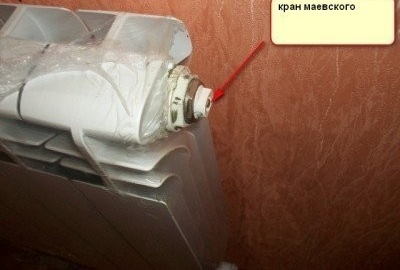
If air enters the heating system, it may cause clicks and sounds to pop. To bleed air from the system, use the Maevsky cock
For more information on how to remove the air plug from the heating system, read our article:https://aquatech.tomathouse.com/en/otoplenie/documents/udalenie-vozdushnoj-probki.html.
Periodic cracking, knocking, and clicking may occur if:
- in the pipes there are small foreign particles;
- system parts are worn out;
- the vent valve has broken;
- unstable operation of the system caused the expansion of the metal.
To stop the crack in the heating pipes, sometimes it is enough to drain part of the water with garbage. In other cases, you will need the help of a professional plumber to repair or replace damaged items.
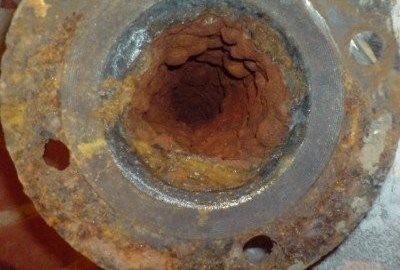
Sometimes the cause of noise in the heating system is the heating pipe overgrown with deposits and particles of rust. Flush or replace such a pipe.
A vent valve often breaks due to improper installation, for example, when the valve is installed in the wrong direction. Such an error can lead to significant damage to the entire heating system.
The reason for tapping may be the condition of the brackets on which the pipes and radiators are attached. The cranked bracket moves under the influence of expansion-contraction of the metal, which causes a knock. To stop this unpleasant phenomenon, it is enough to strengthen the old brackets or replace them with new ones. Sometimes special gaskets are installed between the pipe and the bracket.
Sound insulation of heating radiators
Bimetallic and aluminum heating radiators are good for everyone, except for one - they perfectly transmit sound. Sound waves through pipes easily penetrate even through very thick walls. Many new owners of such light radiators found that the connection between the rooms is almost as good as over the phone. Cry a child, a loud conversation, any noise propagates through metal pipes and causes resonant phenomena in radiators. How to solve a similar problem?
The most radical way to combat increased audibility in the area of radiators is to completely replace them. Heavy cast-iron structures almost do not vibrate, so the sound reaching them is perfectly damped. Of course, modern cast-iron batteries look very presentable and stylish, but the disadvantages of this method are obvious: this is a very expensive undertaking, both in terms of money and time. In addition, you have to wait until the end of the heating season.
If you nevertheless decided to change aluminum radiators on cast ironshould be repeated calculate the required number of sections. For example, for houses with a two-pipe heating system, the temperature in which is regulated depending on the outdoor temperature, it is recommended to increase the number of sections.
Another way to improve sound insulation is to install a special sound-absorbing screen in front of the radiator. It is made from a sheet of OSB, particleboard or ordinary plywood. A layer of dense material capable of absorbing sound, for example, mineral wool, tightened with fabric, etc., is attached to the inner side. The screen is installed in front of the radiator, placing fasteners to the right and left of it. The space above and below should remain open to allow free air circulation. However, it should be remembered that together with undesirable sounds, such a screen will also absorb part of the heat intended for heating the room, which will lead to an increase in heating costs.
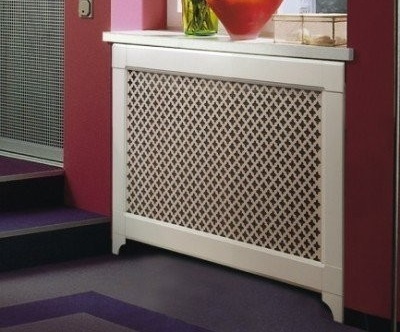
For sound insulation of heating radiators, you can use a stylish and convenient screen. Inside it should be covered with a special dense fabric that absorbs sound
Planning to make a new heating system in the house? Read in our article about the classification of radiators and their advantages and disadvantages:https://aquatech.tomathouse.com/en/otoplenie/radiatory/kak-vybrat-radiatory-otopleniya.html.
Please note that before starting work on sound insulation, it is necessary to check whether the batteries are really “at fault”. To do this, the radiators are covered with several layers of dense fabric, for example, a warm blanket. If the noise level has decreased, the reason is really in the radiators. If the voices from the neighboring room remain loud enough, you need to look for another source of problems with unwanted sound.
Vibration can also be amplified due to insufficiently fastening elements of the heating system. In this case, you should:
- inspect radiators;
- check the reliability of the fasteners;
- clean the area around the radiators;
- close up with the solution all detected cracks;
- reinforce loose brackets;
- check the condition of the openings in the ceilings through which the heating pipes pass;
- putty these openings.
To prevent sound from spreading through the heating system, an obstacle should be placed in its path that dampens the sound waves. Some craftsmen recommend replacing part of the metal pipe with flexible eyeliner. Perhaps in this way it will be possible to reduce the vibration of the heating pipes. But replacing part of the heating system with non-design material can lead to breakdowns.
You can try to attach a heavy metal part to the heating pipes in the ceiling. This can be a cast-iron weight weighing about 50 kg, the handle of which is rigidly fixed on the pipe, and the rest is hidden under the floor covering. It will be necessary to leave a small hatch in order to facilitate the dismantling of additional cargo during repairs.
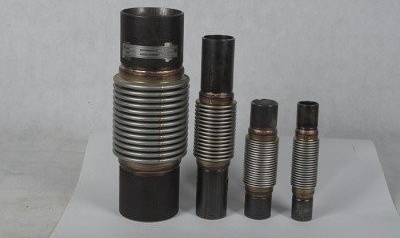
An effective option for sound insulation of heating radiators can be the use of vibration compensators. They are made of durable heat-resistant rubber and perfectly dampen sound vibration.
What can be used to mask radiators, how to close them properly, read in our material:https://aquatech.tomathouse.com/en/otoplenie/radiatory/kak-i-chem-zakryt-batareyu-otopleniya.html.
Think about sound insulation and protection of the heating system should be at the stage of its design and installation. For this, special elements are used - vibration compensators. They are flexible inserts made of composite synthetic rubber. This is a heat-resistant material with a long service life, able to withstand high pressure and a sharp change in working conditions. Vibration compensators protect the heating system from possible water hammer, longitudinal or lateral displacements, compensate for the expansion of the pipeline due to a change in temperature, etc.


